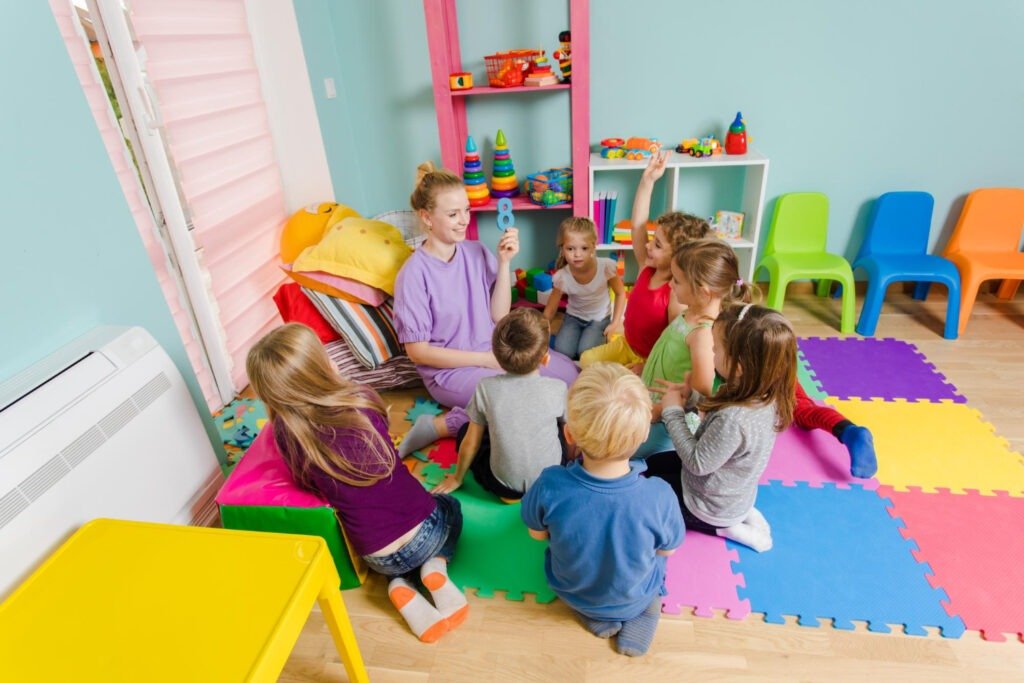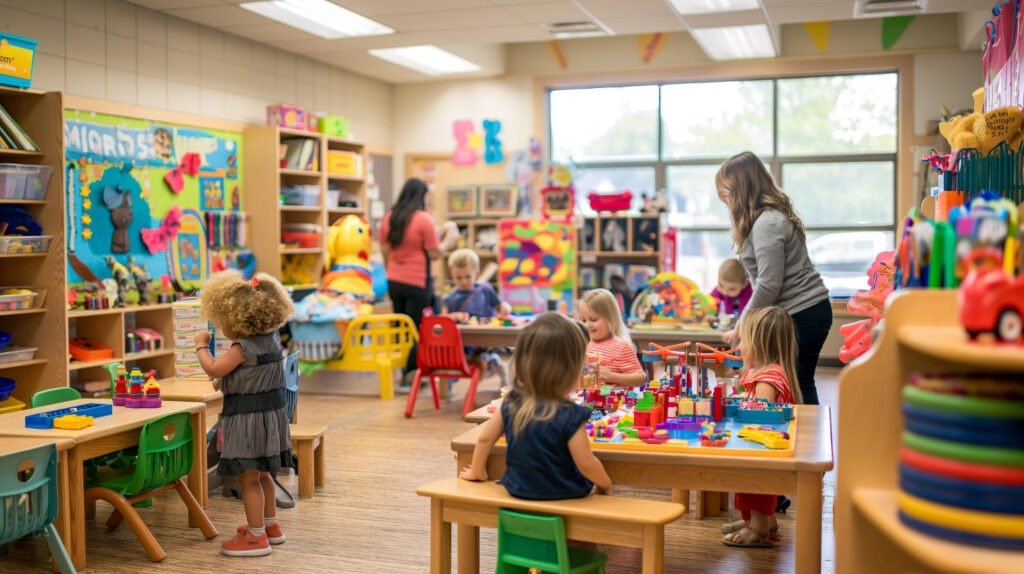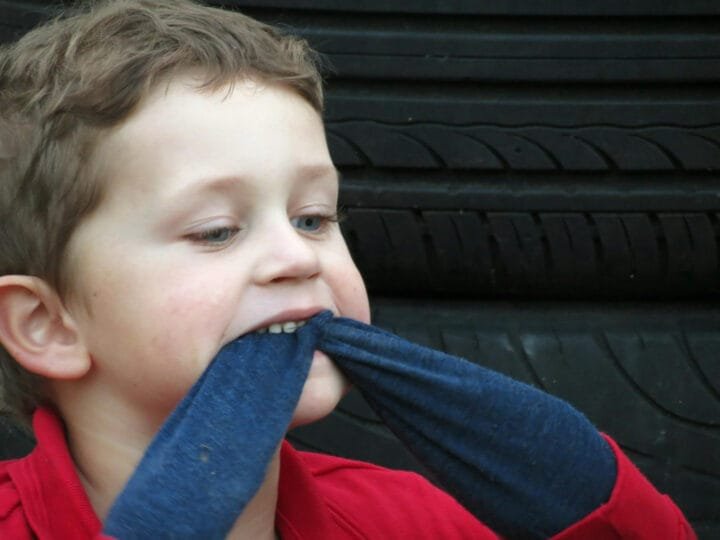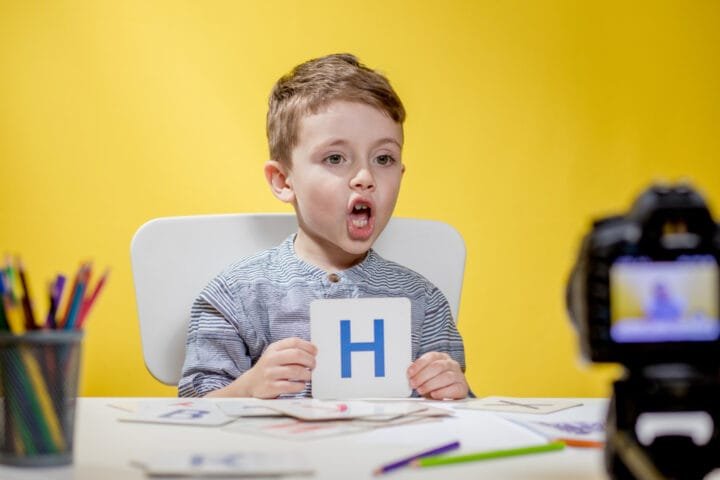My Adult Daughter Talks to Her Friends But Not Me: Am I Losing Her?
Unseen Risks: Unpacking Why Children Should Not Look Over the Younger Sibling?
From Chatterbox to Clam: Why is My Kid Suddenly a Clam Around Certain People?
The Only List You’ll Need: 50+ Couple Things to Do When You Don’t Have Your Kids
Connection Over Correction: Dealing with Teens on Their Phones During Dinner
Debunking the Myth: Why Parents Only Talk About Their Problems?
Timing is Everything: When Is the Best Time to Buy a Breast Pump (From Someone Who Learned the Hard Way)
From the 1900s to Now: The Most Popular Baby Names of Every Decade
Must-Haves for Sports Parents: Essential Gear, Tech, and Strategies for Youth Sports
Newborn Sleep 101: Understanding the “Signs Baby is Too Hot While Sleeping”
What Are Four Activities That Take Place in Family Rooms? Transforming Your Space into a Family Hub
Listen to Your Body: Understanding the Signs of Fertility While Breastfeeding
The Guilt-Free Guide for Moms Who Find Fulfillment Outside of Motherhood
Turning Lemons into Lemonade: How to Get Good Grades with a Bad Teacher
Age-Inappropriate Content: What Books Should You Not Let Your Kid Read?
Why Adopted Teens Embrace Joy: The Importance of Playful Interactions
The Ultimate Guide: How Many Diaper Covers Do I Need for a Year?
Conquer Period Problems: A Guide to the 8 Types of Abnormal Menstruation
Learning to Take Initiative: What Challenges Do Teenagers in the Workplace Face?
Is My Kid Dumb Because He Goes to Half Day Kindergarten?

Is My Kid Dumb Because He Goes to Half Day Kindergarten? A Parent's Guide to Understanding!
Is My Kid Dumb Because He Goes to Half Day Kindergarten?
“Is my kid dumb because he goes to half-day kindergarten?”
Aimee, like many parents, has been enthralled by the nagging worry. This thought keeps her up at night a number of times as her thoughts race over her worries about John’s prospects for the future. Every time she drops her son off at school, she wonders if she’s made the right choice. In a time when full-day school is touted as the best option, Aimee can’t help but be concerned about creating a child for the possibility of failure.
What if all that she’s worried about doesn’t really exist? If the solution” is “Is my kid dumb because he goes to half day kindergarten?” could be more nuanced–and more calming than she thinks? We’ll explore the emotional road that a great many parents, like Aimee, are on.

Aimee’s Growing Concerns
Aimee’s concerns started innocently enough. She was attending an event for a birthday celebration of John’s friend when she noticed the first distinct difference. Children were sitting around and opening presents, as one of John’s peers was able to read the birthday message out loud. The speed with which this other child read the message caused a shiver of anxiety through Aimee. The next evening, she was looking at John while he was asleep, and her stomach was aching and tense. “Is my kid dumb because he goes to half day kindergarten? “ The idea had crept into her brain and was unable to go away.
Over time, Aimee began to notice some other little aspects. In school, Aimee noticed other kids efficiently solving simple math questions or having conversations that seemed to be advanced even for their years of age. While John seemed to be content in his cars and drawing drawings, he was seemingly ignorant of the talents developed by other children. Every comparison fuelled the flame of doubt that raged within her. Is John not keeping up simply because he attended school for an hour? Do you think she was denying him the opportunities other kids had?
Talking with parents from other families didn’t assist. Parents often talked about their kids’ progress through the full-day program with great pride and boasted about how their children had already read books and grasped the new ideas in math. Aimee was unable to resist feeling an unsettling sensation sinking into her stomach. Every single story, each milestone that wasn’t John’s, caused the thought, “Is my kid dumb because he goes to half day kindergarten? “ More persisting and more haunting.
A Day in John’s Half-Day Kindergarten
Despite her fears, Aimee knew that John was a fan of his day-care center. Every day, they would stroll together into the school. The air was full of the noise and laughter of kids. The structure itself, bright and warm, seemed to dance with the excitement of children’s minds working. The moment they walked in, John would let go of her hands and race forward, excited to be with his fellow students. This site would always warm Aimee’s spirit. However, it made her wonder how much happiness she could get from this.
John’s morning began by having a morning circle during which children and the teacher sang songs and talked about their day. The room was flooded by the gentle glow of dawn light that cast gold hues over the brightly colored decorations that lined the walls. These were moments that were easy and precious. They anchored kids with a sense of belonging and being part of the community. However, as the day went on, Aimee’s fears would begin to come back. “Is my kid dumb because he goes to half day kindergarten? “ she might think, even when John took part in numerous educational actions.
The teacher led students through numeracy and literacy activities, turning the lessons into games to keep students engaged and entertained. Aimee was intrigued by the workbooks John took home, packed with awkward numerals and letters that he meticulously wrote. It was clear that he was studying; however, was it sufficient? Was the little time in class preparing him for his future? That question haunted her daily.
The mid-morning hours were for artistic expression. John was a fan of this period of the day. The artist could draw, paint, or build with blocks. In the classroom, there were the sounds of laughter from children as well as the gentle hum of their creativity. John’s drawings frequently depicted beautiful environments filled with creatures, trees, and smiley faces. Aimee loved these illustrations. However, the thought, “Is my kid dumb because he goes to half day kindergarten? “ was on her mind. The artist couldn’t resist comparing his work with much more precise, realistic drawings of kids in full-day schools.
After lunch, the children began running out to the play area. John was racing along with his pals. His face was swollen with joy, and laughter was echoing throughout the air. The physical exercise and freedom to play and run were crucial to his development, and Aimee knew this. But she couldn’t get rid of the idea that maybe the boy might have been missing an essential aspect of his life by not being at school longer.
Seeking Reassurance and Expert Advice
The burden of her anxieties ultimately became too heavy for her to carry on by herself. Aimee required solutions. She contacted teachers, school counselors, and parents with similar issues. The main concern was the same: “Is my kid dumb because he goes to half day kindergarten? “ She had to find out whether her worries were valid or if she was failing her son by not enlisting the child in a full-day school.
Experts were confident. They emphasized that programs for half-day kindergarten could actually provide an excellent base for children to learn from. It wasn’t about the time of school but the caliber of the lessons offered during this period. Teachers explained that the various activities John was involved in, such as phonics games, counting, and creative play, were intended to stimulate his brain and help him grow. An accelerated school schedule doesn’t translate to less learning. It just meant that learning was more intense and better focused.
Educational psychologists were on the scene, too, pointing out that each child’s development is in its way. They advised Aimee to think of John as a unique individual instead of through an eye of contrast. They advised her that the question, “Is my kid dumb because he goes to half day kindergarten? “ Was more an expression of social demands than John’s actual capabilities. They reminded her that the quality of intelligence can be assessed not only through academic standards but also by creativity, curiosity, and emotional intelligence, all qualities that John was gaining from a plethora of others.
However, the most reassuring tips came from parents who were in Aimee’s shoes. They told stories about their children who participated in half-day school programs and achieved success in school as well as socially. Parents stressed the importance of balancing school and at-home activities with the structured curriculum and unstructured playing. They also reminded Aimee that what takes place in the outside world is as crucial as what takes place within the school.
The Unique Advantages of Half-Day Kindergarten
After a while, Aimee began to see John’s unique benefits of his half-day work schedule. The extra period he was at home with his family in the afternoons was a chance to explore his interests and not a disadvantage. When other kids were at school, John was free to pursue his interests. When he was constructing complex structures using his blocks, playing creative games in the backyard, or working with Aimee at the table, These experiences were the same as formal schooling.
Aimee observed that John’s talent thrived in these chaotic times. The ability to share stories, think outside of the boundaries, and be expressive and artistic are all indications that he was learning the way he preferred. The thought, “Is my kid dumb because he goes to half day kindergarten? “ was beginning to fade away from her. She began to realize the advantages of having a less strict schedule that let John have fun as he played, to have fun and grow according to his schedule.
Additionally, Aimee realized that the half-day schedule allowed the family to spend more time together. In the afternoons, they were in the same space; whether it was doing errands, going to the parks, or reading books, it was a treat. These were moments of learning, too, but in a manner that felt more natural and more in line with John’s inherent interest. Our time together was about building an enduring foundation for John’s social and emotional growth, which can’t be assessed using test results or academic achievements.
Experts further suggested that shorter hours may be an excellent way to reduce stress in young youngsters. Although full-day school programs are helpful in many ways, they may occasionally be too overwhelming for young children who may not be ready for long hours of formal learning. Half-day Kindergarten, on the other hand, can allow children to be engaged in their education while having ample time for rest and enjoying themselves. This is a way to foster a love of learning, not burning out, and preparing children to be successful in the long run.
Aimee’s New Perspective
When the school year began to progress, Aimee noticed a transformation–not just within John and her son but also within herself. The thought, “Is my kid dumb because he goes to half day kindergarten? “ was no longer critical. She watched John develop at a pace that pleasantly delighted her. His imagination, compassion, and curiosity were nurtured by the environment that he had created in the half-day class he attended.
Aimee realized that success in early learning is independent of completing the milestones on a checklist. It’s about cultivating enthusiasm for exploring, fostering curiosity as well as establishing a solid emotional base. John had a blast at his own pace, and Aimee was able to see that her initial worries were rooted in the expectations of society and not the best interests of her child.
She has stopped making comparisons of John to the other children in her class and instead praised his advantages. When he was making complex block towers, imagining stories through his toys or being curious about the world around him, Aimee saw that he was constantly learning. Aimee’s question, “Is my kid dumb because he goes to half day kindergarten? “ was replaced with an enthralling gratitude for the wealth of John’s experience.

Conclusion
Aimee’s experience with her son’s half-day kindergarten experiences was one of self-discovery as well as growth. At first, she was engulfed by fear that John could have a problem and was haunted by the thought, “Is my kid dumb because he goes to half day kindergarten? “ However, when she saw her son excel in both his academic and emotional growth, she came to realize that her worry was not based on fact.
With expert guidance, the help of other parents, and personal experiences, Aimee learned that every child’s journey is different. Success in preschool education isn’t carved in stone; it’s a very personal experience that differs between one child and the next. For John, the half-day kindergarten program was the ideal mix of structured education with the opportunity to pursue the interests of his child.
Aimee’s tale is an inspiring lesson for parents who are facing similar questions. Be confident in your instincts, concentrate on your child’s overall well-being, and be aware that academic achievement is not measured only by the number of hours in a class. Aimee realized the importance of time spent with her children and the free play she enjoyed, as well as the happiness of seeing her child develop according to his style. If you’re a parent who asks, “Is my kid dumb because he goes to half day kindergarten? “ Aimee’s story provides a comforting response: No, your child’s not stupid. They’re just on their path of growth and learning.
Key Takeaways
Aimee’s tale provides crucial information for the more considerable debate concerning early childhood education, precisely the benefits of programs that offer half-day kindergarten. The key lessons:
- Beware of Comparisons: Each child develops according to their pace. Evaluating your child’s progress against others will cause anxiety and stress. Be sure to recognize and praise your child’s strengths and potential growth areas rather.
- value unstructured time Half-day kindergarten gives an extended time outside of the classroom. This is equally educative. Play, hobbies, or other family events, kids learn in a variety of ways that aren’t usually taken into account by the traditional academic setting.
- Be awed by your instincts as a parent: The parents know the kids most effectively. Be awed by your intuition about the best option for your child, regardless of whether it is against the established norm. Early education success is more than academics. It’s about emotional and social development, too.
- Prioritize Quality Over Quantity The focus is not on how long your child attends school but rather on the level of opportunities they get during their period. Half-day classes can provide a well-rounded, balanced education that promotes an appreciation of learning without overburdening youngsters.
The story of Aimee is a testament to the fact that academic achievement isn’t a universal experience. If you’re a parent who asks, “Is my kid dumb because he goes to half day kindergarten? “ Be aware that each child’s journey is their own and is filled with possibilities to develop, gain knowledge, and excel in a variety of ways that might be a surprise to you
Recommended Books
The Whole-Brain Child: 12 Revolutionary Strategies to Nurture Your Child’s Developing Mind
- Written by Daniel J. Siegel and Tina Payne Bryson, this book combines neuroscience with practical parenting strategies. It provides 12 key strategies to help parents nurture their child’s developing mind, fostering emotional intelligence and resilience.
Mind in the Making: The Seven Essential Life Skills Every Child Needs
- Ellen Galinsky explores the essential skills that contribute to children’s success in life. This book emphasizes the importance of play and how it helps develop critical thinking, self-control, and communication skills.
- This insightful book by Kent Hoffman, Glen Cooper, and Bert Powell focuses on building secure attachments between parents and children. It offers guidance on fostering emotional resilience and encouraging exploration in a safe environment.
The Importance of Being Little: What Young Children Really Need from Grownups
- Erika Christakis discusses the needs of young children in this thought-provoking book. She argues for the significance of play and exploration over rigid academic structures, emphasizing what truly nurtures a child’s growth.
- Peter Gray advocates for the importance of play in education and child development. He explains how allowing children the freedom to explore leads to happiness, independence, and better learning outcomes.
The Gift of Failure: How the Best Parents Learn to Let Go So Their Children Can Succeed
- Jessica Lahey shares insights on how allowing children to experience failure can foster resilience and independence. This book encourages parents to step back and let their children learn from their mistakes.
Additional Resource
- Check out this insightful post on your blog: What Goals Do You Have for Your Child? 8 Game-Changing Goals You Must Consider. This article explores important goals that can help shape your child’s future while considering their unique needs and strengths.


























































